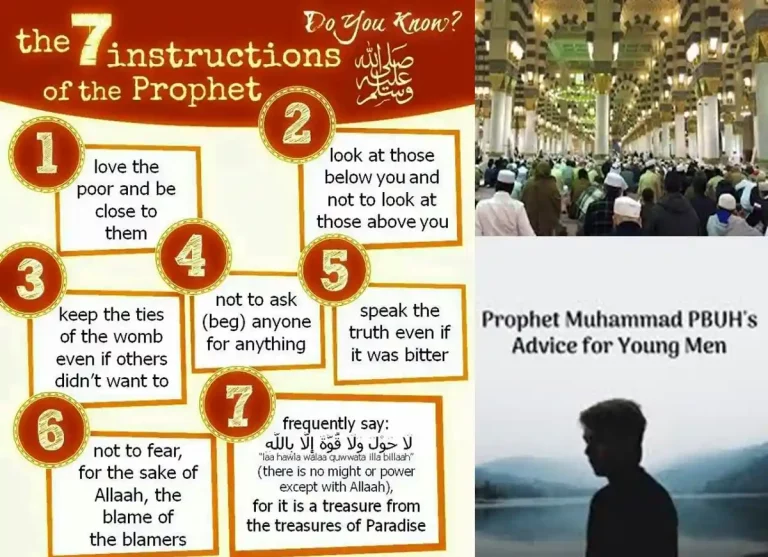Battle of Khaybar
Khaybar was at the distance of three stopovers from Madinah toward Syria (Shaam). It was a stronghold of the Jews and was surrounded by strong forts. (Seerah Halabiya, 2: 726.)A short while after his return from Hudaybiya (less than a month), the Prophet (pbuh) received information that the Jews were planning to launch an attack on Madinah again. They had taken 4,000 fighters from the Banu Ghatfan tribe with them on the promise that Banu Ghatfan would get half of the produce of Madinah permanenetly, if it was conquered. (Seeratun Nabi, 1: 478, reference Tareekh Al- Khamees.)The Prophet (PBUH) raised an army and included in it only those Companions who were with him at Hudaybiya and were blessed with the promise of Allah’s pleasure, as revealed in the Qur`an:
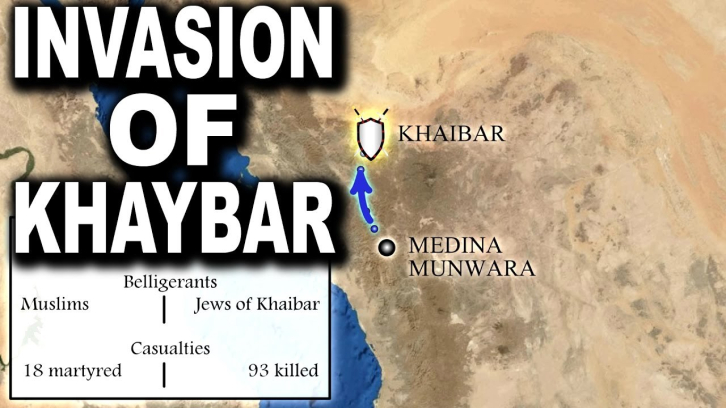
“Indeed Allah was pleased with the believers when they gave the Bai’ah (pledge) to you (O Muhammad, (PBUH) under the tree: He knew what was in their hearts” [Al-Fath, 48: 18].
And who received the glad-tidings of Allah has promised you abundant spoils that you will capture, and He has hastened for you this. [Al-Fath, 48: 20] This army consisted of 1,600 soldiers in which 200 were mounted. (Seerah Halabiya, 2: 726.)
The Muslim army reached near Khaybar at night and camped in the field. It was a practice of the Prophet (pbuh) that he did not start a battle at night nor did he ever launch a night attack on the enemy. (Sahih Al-Bukhari, Kitabul Maghazi, Bab Ghazwae Khaybar. ) This field fell in between the people of Khaybar and their ally Banu Ghatfan. So when Banu Ghatfan wanted to march toward Khaybar to join the Jews, they found the Muslim army in the way and preferred to return.
The Prophet (PBUH) conquered the forts of Khaybar one after another. One of the forts was under the rule of the famous Jewish fighter Marhab, which fell to Hazrat ‘Ali. The details of this encounter recorded in history are as follows:
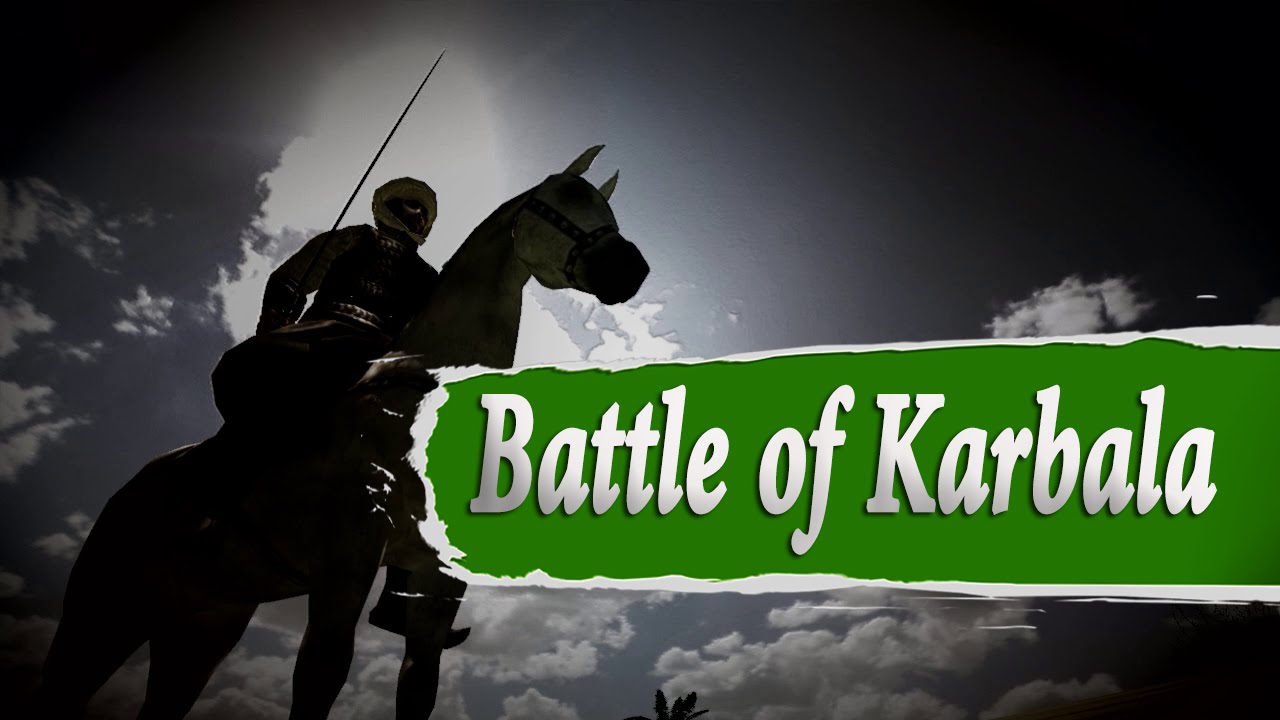
The Muslims found this fort very difficult to conquer. Hazrat ‘Ali’s eyes were aching those days due to some ailment. The Prophet (PBUH) announced that next day:
“The flag of the army would be given to a person whom Allah and His Prophet love and who would conquer it.”
This glad tiding was so exciting that all the brave men in the army developed a desire to be blessed with this honor. In the morning the Prophet (PBUH) called Hazrat ‘Ali and was informed that his eyes had developed some ailment. When Hazrat ‘Ali appeared before the Prophet (PBUH), he applied some saliva from his mouth over Hazrat ‘Ali’s aching eyes. Hazrat ‘Ali’s eyes recovered immediately: neither the redness of eyes remained nor the pain. The Prophet (PBUH) then instructed him in these words, “‘Ali! Go and fight in the path of Allah. Invite the enemies to Islam first, and fight only when they refuse. ‘Ali! If even one person accepts Islam at your hands, it would be better than collecting heavy booty in the battle.” (Sahih Al-Bukhari, Kitabul Maghazi, Bab Ghazwae Khaybar, Sahih Muslim, Kitabul Jihad, Bab Ghazwae Khaybar.)
Hazrat ‘Ali attacked the Fort Naa’em first. The famous chief guarding the fort called Marhab, who used to announce himself as equal to 1,000 fighters, came out for a duel. He was reciting the war verses:
“Khaybar knows that I am Marhab who loves to adorn himself with arms and is known for valor and expertise. When others lose courage, I exhibit bravery.”
Hazrat ‘Aamir bin Al-Akwa’ stepped forward to meet his challenge. He was also reciting war verses: “Khaybar knows that in using arms I am expert, and as fighter, I am tough and fierce. I am ‘Aamir.”
Marhab attacked him with his sword which ‘Aamir® took at his shield and tried to hit at the lower part of Marhab’s body. But as his sword was relatively short in size, he missed Marhab and hit his own knee. He lost his life in the battle.
Then Hazrat ‘Ali himself proceeded to the battleground. He was reciting the following war verses:
“I am the one who was given the title of the Fierce Lion by my mother. I am like the lion of the forest and am exceedingly dreadful. I will give away in large measure according to the measure of my generosity.”
He attacked Marhab and killed him in one stroke. This brought victory to the Muslims. (Sahih Muslim, Kitabul Jihad was Siyar.)
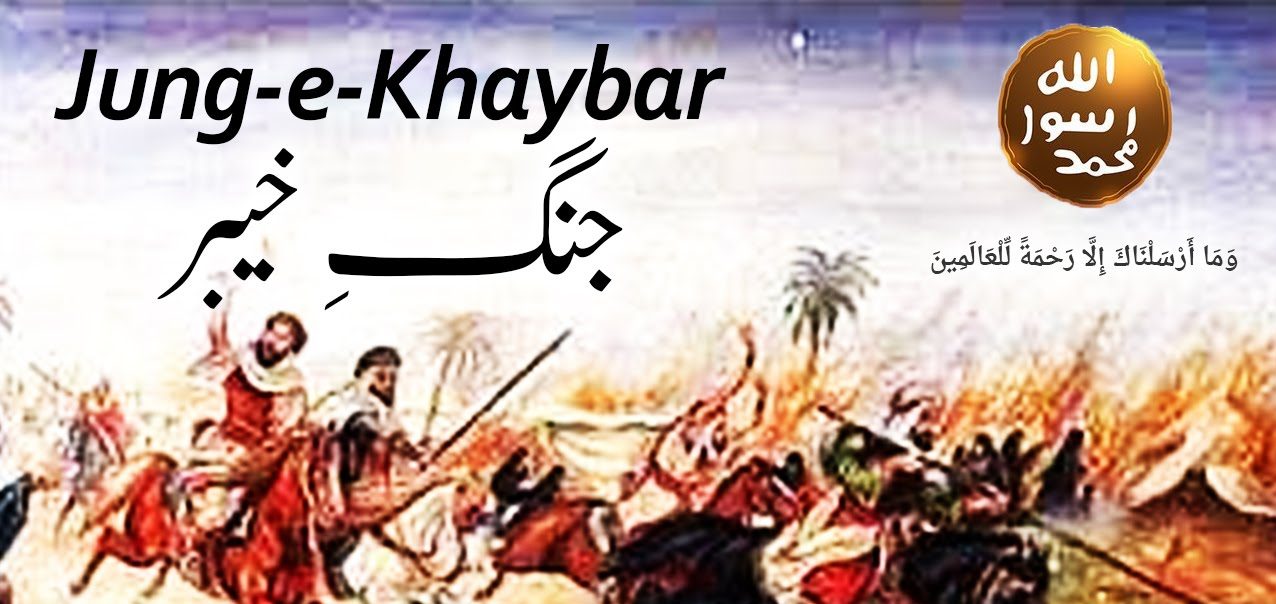
When the Jews of Khaybar were making preparations to fight against the Muslims, a black slave who was a shepherd in the service of a Jew there, inquired the Jews of their intent. Learning from them that they were out to fight the person who had claimed prophet hood, he developed a desire to meet the Prophet (PBUH) and went to see him. He asked the Prophet (PBUH) what his message was. The Prophet (PBUH) replied, “I call people to Islam and invite them to repose faith in the fact that there is no deity worthy of worship except Allah and that I am a Prophet of Allah and that you should worship none but Allah.” The black slave inquired, “If I profess this faith and bear faith in Allah, what shall I get?” The Prophet (PBUH) replied, “If you die on this faith, you will be rewarded with paradise.” The shepherd accepted Islam. He then asked the Prophet (PBUH) what he should do with the herd of goats which was in his keeping at that time and was a trust with him. The Prophet (PBUH) advised him to put the goats on the track and goad them toward home, promising that he would thus be relieved of the responsibility of trust. He did accordingly and the goats returned to their master’s home. The owner of the herd had no difficulty in understanding that his slave had turned a Muslim. Then the Prophet (PBUH) gave a sermon encouraging his Companions for Jihad. When the Muslims and the disbelievers engaged each other in the battle, the shepherd also fell martyr. The Muslims took his dead body to the tent. The Prophet (PBUH) saw him and remarked, “Allah showed great favor to this slave and blessed him with magnificent guidance. I saw two Hoor (female heavenly creatures) at his head side, although he had not offered prostration even once.” (Dalaele Nabuwwah, 4: 219, Zadul Ma’ad, 3: 323.)
Similarly, a person came to the Prophet (PBUH on the eve of the battle and said, “O Prophet of Allah! I am black in complexion, very humble in facial features, and possess a natural bad odor. If I fight against the Jews and am killed, shall I go to paradise?” The Prophet (PBUH) replied him in the affirmative. He advanced, fought, and got killed. The Prophet (PBUH) went near his dead body and said, “Allah made you handsome in countenance, fragrant in odor, and rich with abundant wealth.” He then added, “I saw that he had two wives from the Hoor. (Dalaele Nabuwwah, 4: 221, Zadul Ma’ad, 3: 324.)
Before the commencement of the Battle of Khaybar, a bedouin came to the Prophet (pbuh), accepted Islam, and kept his company. The Prophet (PBUH) entrusted him to a Companion to teach him Islam. After the battle, the Prophet (PBUH) also gave him a share in the booty. At that time he was out to graze the camels of his associates. Upon his return, the Companions gave him his share of booty. He appeared to the Prophet (PBUH) and inquired what that share was for. When he was told that it was his share in the war booty, he told the Prophet (PBUH), “I followed you not for the booty. I did it so that an arrow may pierce here (he pointed at his neck) and take me to paradise.” The Prophet (PBUH) replied, “If you are sincere in your intention, Allah shall make it happen to you.” The Bedouin fell martyr in the battle of Khaybar. When his dead body was brought to the Prophet (PBUH), he asked, “Is he the same person?” The Companions replied in the affirmative. The Prophet (pbuh) said, “He was sincere in his intention and Allah blessed him with what he wished for.” The Prophet (PBUH) enshrouded him in his long dress for burial, kept his dead body in front of him while offering the burial prayer (Salatul Janaza), and prayed, “O Allah! This slave of Yours had come out in Hijrah for you and died as martyr, and I am his witness.” (Sunan Nasai, 4: 60, Mustadrak Haakim, 3: 495, Dalaele Nabuwwah, 4: 221.)
After the conquest of Khaybar the Muslims took the agricultural land into control. But the Jews requested that the land be given back to them on the condition that they would give half of the produce to the Muslims. The Prophet (PBUH) agreed. (Sunan Abi Dawood, Kitabul Khurooj wal Imara.) At the time of the distribution of the produce, Hazrat ‘Abdullah bin Rawaha, the Prophet’s representative for the purpose, used to divide the produce in two parts and give the Jews the option to take any of the two. The Jews were surprised at this just treatment accorded to them and remarked, “The earth and the sky are held intact by this very kind of justice.” (Fotuhul Baldaan Balazari, p. 34.) The land of Khaybar was distributed among the Mujahideen who participated in the battle. (Abu Dawood, Kitabul Khurooj wal Imara.)
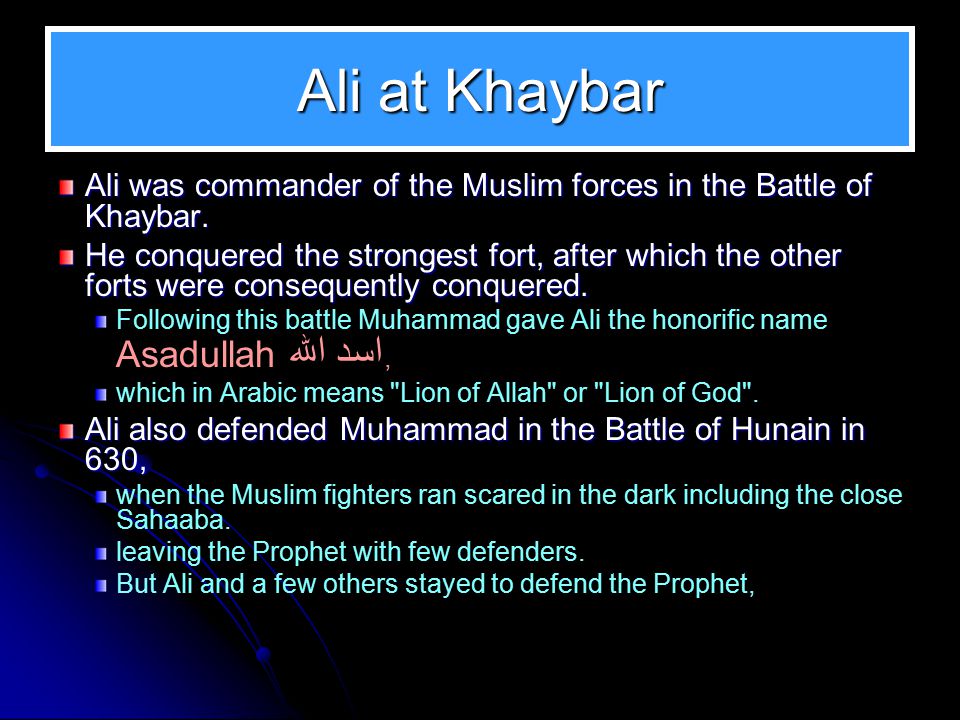
On the eve of the Battle of Khaybar, Hazrat J’afar bin Abi Talib, arrived from Abyssinia (Habsha) with his associates, including Ash’ari of Yemen, who were about fifty in all. They were riding a boat which sailed to the coast of Yemen where they met Hazrat J’afar and his associates. J’afar told them that he was sent there by the Prophet (PBUH) and was asked to stay there. He invited them to stay with him. They stayed in Abyssinia with J’afar and traveled to Khaybar with him. When the Prophet (pbuh) heard Hazrat J’afar’s voice, he was overjoyed and advanced to meet him. He kissed Hazrat J’afar’s forehead and said, “By God! I am not sure whether Khaybar’s conquest is more pleasing to me or the arrival of J’afar.” The Prophet (PBUH) gave shares in booty to the new comers, too. (Sahih Al-Bukhari, Kitabul Maghazi, Bab Ghazwate Khaybar, Sahih Muslim, Kitabul Fazael.)
On the eve of this very battle, a Jewish woman poisoned the Prophet (PBUH). Zaynab, wife of Sallam bin Mushkam, asked the Companions which part of the goat’s meat the Prophet (PBUH) liked most. They told her that he liked most the meat of the foreleg of a goat. She brought to him a fried goat and mixed a lot of poison in the foreleg. When he took a bite from it, Allah revealed to him through that part of the meat itself that it contained poison. The Prophet (PBUH) asked the Jews about it; they accepted. They submitted that they wanted to test that if his claim of prophethood was untrue, he would die of poison, but that if he was a true prophet, he would not be hurt. The woman was also brought to him who confessed that she, in fact, intended to kill him. The Prophet (PBUH) commented, “Allah would not have let you do so.” The Companions sought his permission to kill the woman in revenge, but he forbade them from it and let her go free. (Sahih Al-Bukhari, Kitabul Maghazi.)
According to the Hudaybiya Treaty, the Prophet (pbuh) was permitted to go to Makkah for ‘Umrah that year. He made an announcement that all those who were with him in the ‘Umrah trip last year should accompany him. Excepting those who had died, all others joined him and performed ‘Umrah with him. (Sahih Al-Bukhari, Kitabul Maghazi, Bab ‘Umratul Qaza`. Seerat Ibn Katheer, 3: 429.)One of the clauses of the treaty required that the Muslims should not carry arms with them. The Prophet (PBUH) honored it and left all arms at Batan or Juj, about eight miles before Makkah. He deputed 200 soldiers to guard the arms. On entering Makkah, the Prophet (PBUH) proceeded toward Al-Haram, reciting Labbayk. ‘Abdullah bin Rawaha was holding the reins of the Prophet’s camel and reciting the Rajz (war verses):
“Disbelievers! Move out of way. If you dare to stop us from descending, we will deal with you with a sword and strike in such a way which will separate the head from the bedroom and blow all friendship to the wind.”
The Companions accompanied the Prophet (PBUH) in a very large number. They were performing the rituals of Hajj with enthusiasm. The people of Makkah had thought that the hot climate of Madinah must have weakened the Makkan emigrants there. So the Prophet (PBUH) ordered his Companions to walk with firm steps exhibiting strength and energy in the first three rounds of the Tawaaf. (Sunan Al-Bukhari, Kitabul Maghazi, Bab ‘Umratul Qaza`) This practice is called Ramal in Arabic. This Sunnah (prophetic practice) is still observed by Muslims.
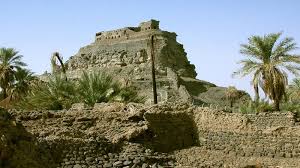
Although the Quraysh had permitted the Muslims to come to Makkah, their presence in the city was a sight too painful for the Quraysh to bear. Most of them had moved out of the city and gone to the mountains. They came to Hazrat ‘Ali after three days and reminded him that, according to the terms and conditions of the treaty, the Prophet (PBUH) should vacate the city. As soon as Hazrat ‘Ali told the Prophet (pbuh) about it, he set out from Makkah the very moment. (Sahih Al-Bukhari, Kitabul Maghazi, Bab ‘Umratul Qaza`) When he was about to leave, Umama, the little daughter of Hazrat Hamza, who was still living in Makkah, came running to him and calling him by the loving word, “Uncle.” Hazrat ‘Ali picked her up in his arms and sought the Prophet’s permission to raise her in his family. Hazrat J’afar and Hazrat Zayd bin Haritha also put their claims for the custody of the child. Hazrat J’afar claimed that she was his uncle’s daughter. Zayd claimed that she was his niece as Hamza was his brother in religion. Hazrat ‘Ali claimed that she was his cousin and had come to his lap first. The Prophet (PBUH) gave the child to the care of Asma` who was her aunt and said, “The aunt is like the mother.” (Sahih Al-Bukhari, Kitabul Maghazi, Bab ‘Umratul Qaza`.)
Related Topics: Then there are some more informative posts for you!
- When was the Battle of Hunayn fought?
- When was the Battle of Moota fought?
- When did the Battle of Khaybar in Islam occur ?
- When and where was the Battle of Trench fought?
- When did as per Hijri calendar Uhud occur?
- Whether the battle of Badar was a Manifest Victory?
Our Best Android Apps
About CEO Al-Asad Online
Hafiz Abdul Hameed
Master In Islamic Studies
(Tajweed, Waqf)
Web Developer/Administrator
Web Content Writer
Blogger, SEO Expert
Graphic Designer
WhatsApp: +92 3017363500
E-Mail: [email protected]





